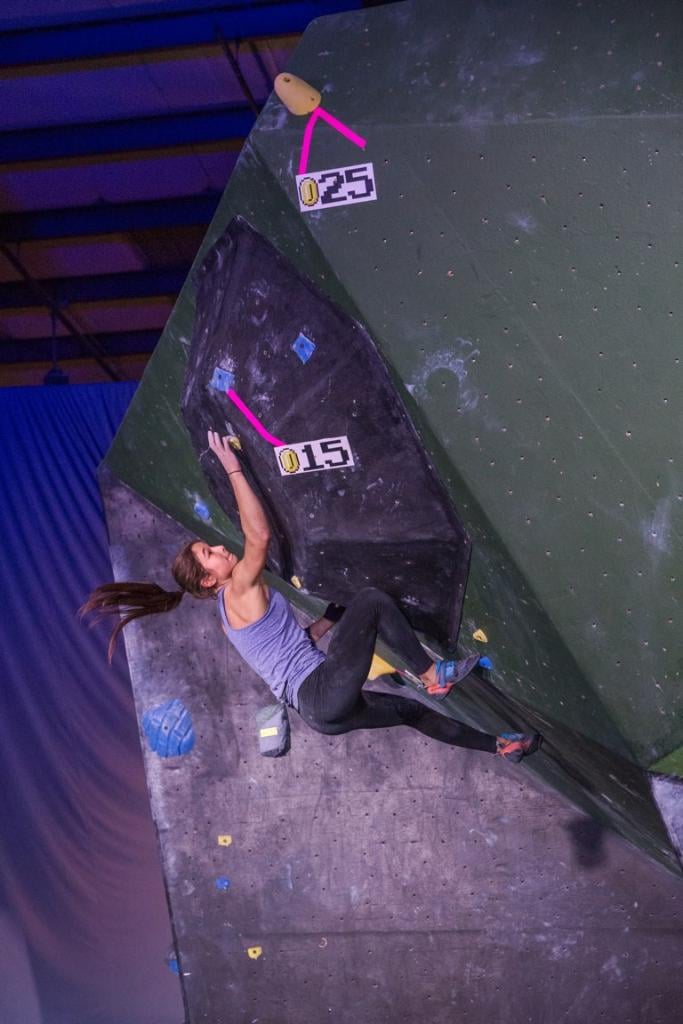When I was in elementary school, I developed a crush on a Swedish girl my family hosted for a few days. As soon as she left, I committed to teaching myself Swedish, so that I could move to her homeland, impress her and, naturally, marry her. While my crush dissipated with time, my studies stayed strong for a few years. At one point, when I was about thirteen, I was convinced that I would take a year off between high school and college to attend a Swedish boarding school (coincidentally located in the same municipality as my ex-crush’s hometown).
But as soon as high school started, I became laser-focused on college: on getting in, attending it, enjoying it, graduating and moving on. Somewhere along the way, I lost my once-certain dream to take a gap year in Sweden.
Some people, however, stick to it. This year, for instance, 54 students deferred their admission to Stanford, according to Cheryl Fletcher from the Office of Undergraduate Admissions. I recently spoke with two such students to hear what they’ve been up to. Maya Madere from Austin, Texas and Will Shan from San Jose, California will both be joining us on campus next year as members of the class of 2022.
The Stanford Daily (TSD): Why did you choose to take a gap year?
Will Shan (WS): One, I don’t know what I want to study at school, and although a lot of people I know walk in not knowing what they want to study, for me it felt like paying tuition to figure that out and explore potential majors and fields was a bit of a waste. So I wanted to figure that out during my gap year so that I can better and more efficiently use my time once I start college.
And also for my personal growth and development. I think there are a lot of things that I can learn during my year off that would help me better use my time in college. And I think I have a lot of habits that I want to build that I wouldn’t get a chance to build if I were occupied taking classes, doing homework, etc. And under that, there’s a subset of professional development too. There’s research that suggests that people who are able to spend a year before their freshman year immersing themselves in actual real-world careers and opportunities tend to have a competitive advantage because they have that experience. This wasn’t a driving force for me, but it’s something I thought of when I was doubting myself and talking to my parents and friends.
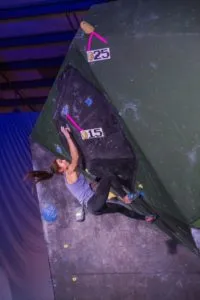
Maya Madere (MM): I’m a competitive rock climber, and a lot of the competitions I do are overseas and around the country, so I wanted to take a year to do the full World Cup circuit before I started college, because I knew that all that traveling wouldn’t be feasible if I went to school full time. This year I’m focused on training and doing as many competitions as I can before I have to turn it down a little.
TSD: How did your family and friends react to your decision?
WS: My parents were iffy at first. But luckily, I have an older brother who paved the way and gave me a lot of freedom because he pushed against my parents so much. My friends, I think a lot of them didn’t understand. My immediate friends eventually came around to understanding it… my classmates overall did not very much understand… they were like, you got into this great school, why are you putting it off? So there was a lot of confusion there.
MM: They were 100 percent supportive. It was always assumed in my family that climbing would be a hobby, and that I would have a career, and that was always non-negotiable. They wouldn’t have let me take a gap year without a plan pretty much set for college. But they were super supportive of me deferring and taking a year to do my thing. A lot of people said, “Oh man, I wish I did that” when I told them about it. And all my teachers, they were all excited about it. The one person who was not was my grandfather. He said that it was a terrible idea, that I would never go back to school… but I’m definitely going to school!
TSD: How did you plan your gap year?
WS: When it comes to planning a gap year, there are two approaches to it. A lot of people do structured programs, so they basically opt into a program, they take you abroad, place you in internships for you, and you just pay money for that. I decided that I wanted more freedom and that I wanted to self-structure my gap year.
MM: So I thought about it for a while. I knew I wanted to do the circuit at some point in my life, and I knew that once I go to college, and possibly grad school, I probably am going to be too old to get back into it and train enough to be good. The best people in the international circuit are all under 30. So I wanted to take a year to do competition climbing before it became more difficult.
TSD: What have you been up to so far?
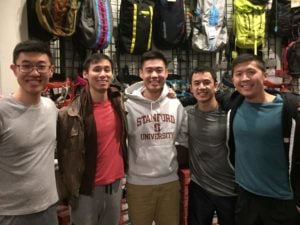
WS: I already had a lot of personal goals that I wanted to achieve, so I created space for those. So for example, there are a lot of books that I’ve been meaning to read, like Mastery by Robert Greene, Homo Deus by Yuval Harari, that I think could be really pivotal to how I live my life and see the world, so I’ve been making a lot of time for that. I wanted to take more control of my health. I’ve been cooking, I started exercising. I’m going rock climbing, and I’m going to hip hop workshops. I learned that health is a lot more important than I thought it was. Now I sleep at 12 a.m. and wake up at 8:25 a.m.
There are some projects I also wanted to do. I wanted to become more technical, so I’m teaching myself how to code. I’m doing an internship at the Silicon Valley Organization. For me, as someone who is interested in politics and business and education, this was a really good fit, because the project I’m working on is bridging the education and workforce gap, get high school students in San Jose more ready to enter the workforce. This is a lot closer to what I want to do in the future. I’ve also been going to some really interesting events, like conferences, assemblies, discussion communities… places where I think I can meet a lot of cool people.
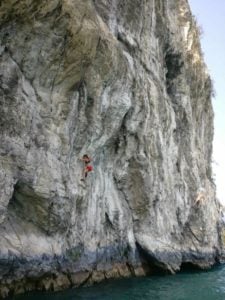
MM: At the end of the summer, I went to Europe for a month. I competed at a world cup in Germany, this kinda promotional event. It was a big international competition for Adidas called Adidas Rockstars. Then the Youth World Championships in Austria and just traveled Europe, and I went climbing outside in Magic Wood in Switzerland… it’s appropriately named. I also went to Lake Garda in northern Italy. When I got back from that, for 10 weeks straight, I had a competition every single weekend. It’s been a lot of fun, but also exhausting.
TSD: How do you feel seeing your friends settle into college?
WS: I still see them. Two of my closest friends go to Berkeley and Davis. I thought I’d feel lonely, and that things were moving along without me, but I don’t feel that way. Because I think that I’m getting a lot of value out of my gap year. When I think of how great it’s been, and how good an effect it’s had on my life, I don’t worry about that anymore. I feel a lot more clear-headed, a lot more in control. Back in high school, when I had a task list, 90 percent of the things on that task list were things I had to do, things that other people wanted me to do, that were assigned to me. And now, 90 percent of the things I do, I do for myself. And I feel good about my friends. I think they took a step that was right for them, and I think I had a different path.
MM: It has been a little weird. I’m traveling so much that I’m hardly ever home, but when I am home, I realize that none of my friends are there because they’re in college. So it has been a little weird hearing about how they’re going off, and talking to people about moving in and making friends and their courses and stuff, but most of the time I’m just like, “Ha, I don’t have to be in school right now.” But I kinda do feel like I’m missing out a little since I’m not going through that at the same time as my friends. Having everybody gone from my hometown had an unexpectedly big impact on me, but so far it’s been a really great decision, and this has been a really great year, so I wouldn’t have done it any other way.
TSD: What are you looking forward to the most in the remainder of your gap year?
WS: Don’t know much about my January on schedule. I think I’m looking forward to continuing to have the freedom that I currently have, to explore whatever I want immediately. Like cryptocurrency is something I started looking into two weeks ago. And that’s just because of all the hype around it. And I was able to devote one hour to it each day, to figure out what it means, the technology, what are the implications… and I don’t think I would have ever had that in high school, or even in college. Having this freedom to, when you face an interest, when you find something you’re curious about, immediately devote a substantial amount of time to it is something I’ve really enjoyed.
MM: I have three weeks without any competitions starting now, so I’m just really excited to be able to focus on training, and go climbing outside, and just take a step back from the competition scene for a while, because it’s definitely a lot both mentally and physically. And definitely doing international competitions. I’m also excited to get to climb in natural areas and go climbing outside, because I train in a gym and competitions are indoors, so there’s not a whole lot of time when I can go and climb in real rocks, which is ultimately the most fun way to climb. So I’m glad I’ll get to do a lot of that… and traveling. I really love traveling, and climbing is really conducive to that.
TSD: What would you say to a high school senior on the fence?
WS: It sounds a lot scarier than it actually is. You don’t have to have everything planned out, though it’s good to. You can reach out to people who’ve taken a gap year before. It’s not for everyone, but for those who it is for, it can be immensely more valuable than going straight to college.
MM: I would say do it! So far it’s been nothing but great but I would also say that you need to have a plan for whatever you’re going to do. But I wouldn’t take a gap year if I was just going to stay at home and work, or if I was just going to hang out. Because all your friends go to college, and there’s not that much for you if you’re just in this limbo between high school and college and you don’t know what you’re doing with your life. Because if you have a thing that you want to pursue, if you want to travel the world, go for it. Or if you want to take an internship at this hospital that you want to work at, and if it’s a full-time thing and you couldn’t do it while in college, just do it. But if you’re going to take a gap year just because you don’t want to go to college yet, it might not be as good of an idea.
TSD: What kind of person can benefit from a year off?
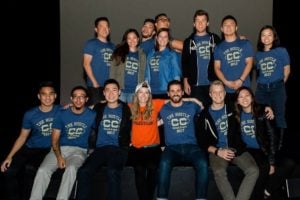
WS: It’s for people who are pretty independent-minded… people who have things that immediately come to their mind if I asked the question, “Hey, if I gave you a year, don’t worry about finances, what would you spend it on?” If at least two or three things came to mind, these are the type of people who would thrive in a gap year. I think people who are looking for a different experience, people who are burned out from high school, people who want a break from super structured education and who don’t fully believe in the merits of going straight to college, or people who don’t just think that going to college for four years and doing the normal things, and taking classes and doing internships… that that’s going to add value to your life, people who are in a mindset where they are a little hesitant about what value college would bring to their life, taking some time off to define that value and think about what college could mean to me, what it should mean for me?
MM: I don’t know everyone’s situation, but I think that for most people, it’s a great thing. Transitioning from being in public high school to being in college can be hard… I want more experience being in the real world before that. I know college is a lot more like the real world than high school, but it’s still a bubble, and I also definitely think that there is wisdom to applying and deferring rather than waiting to apply, because I know that it would take me so much motivation to go through the college application process if I wasn’t in high school.
These interviews have been lightly edited and condensed.
Contact Lucas Hornsby at lhornsby ‘at’ stanford.edu.
